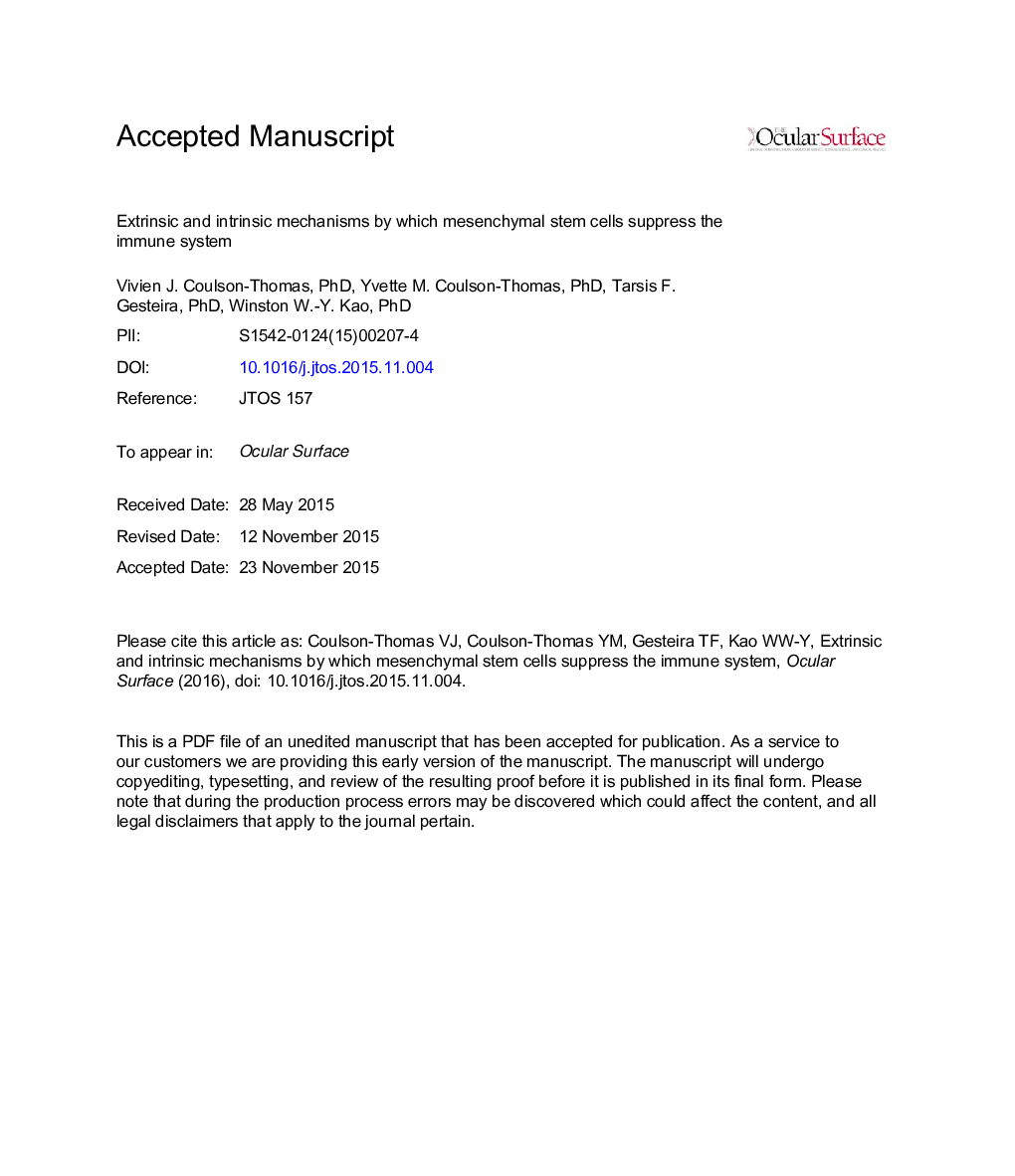| Article ID | Journal | Published Year | Pages | File Type |
|---|---|---|---|---|
| 10163591 | The Ocular Surface | 2016 | 42 Pages |
Abstract
Mesenchymal stem cells (MSCs) are a group of fibroblast-like multipotent mesenchymal stromal cells that have the ability to differentiate into osteoblasts, adipocytes, and chondrocytes. Recent studies have demonstrated that MSCs possess a unique ability to exert suppressive and regulatory effects on both adaptive and innate immunity in an autologous and allogeneic manner. A vital step in stem cell transplantation is overcoming the potential graft-versus-host disease, which is a limiting factor to transplantation success. Given that MSCs attain powerful differentiation capabilities and also present immunosuppressive properties, which enable them to survive host immune rejection, MSCs are of great interest. Due to their ability to differentiate into different cell types and to suppress and modulate the immune system, MSCs are being developed for treating a plethora of diseases, including immune disorders. Moreover, in recent years, MSCs have been genetically engineered to treat and sometimes even cure some diseases, and the use of MSCs for cell therapy presents new perspectives for overcoming tissue rejection. In this review, we discuss the potential extrinsic and intrinsic mechanisms that underlie MSCs' unique ability to modulate inflammation, and both innate and adaptive immunity.
Keywords
Related Topics
Health Sciences
Medicine and Dentistry
Ophthalmology
Authors
Vivien J. PhD, Yvette M. PhD, Tarsis F. PhD, Winston W.-Y. PhD,
